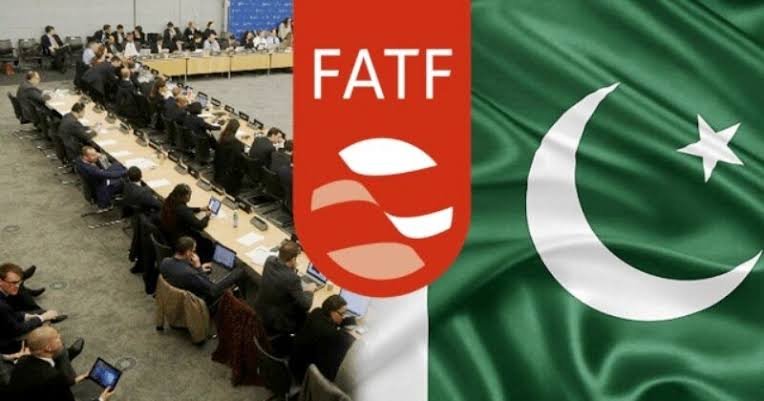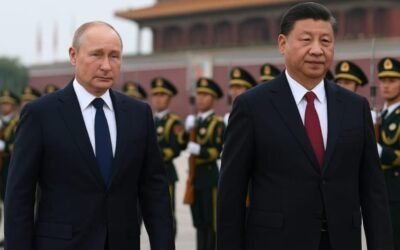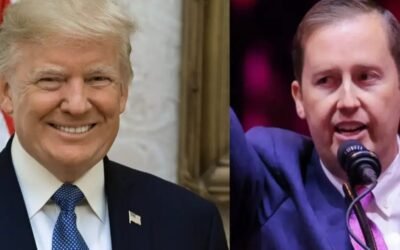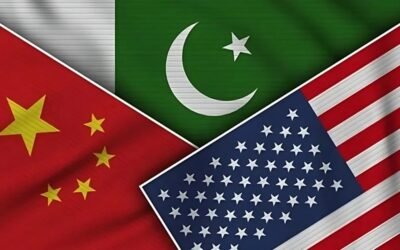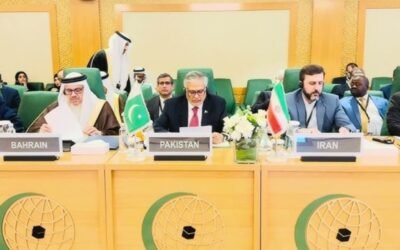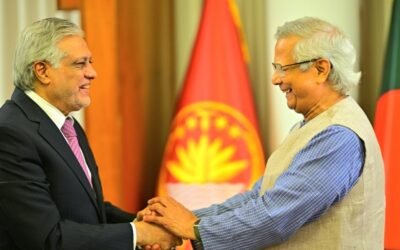Pakistan’s involvement with international economic institutions such as the World Trade Organization (WTO), the Group of Twenty (G20), and the Financial Action Task Force (FATF) plays a significant role in shaping its economy, trade policy, and international standing. Each body has a unique influence on the country’s economic stability and governance.
World Trade Organization (WTO)
The WTO sets the rules for global trade and provides a framework for resolving disputes. Pakistan has been a member since 1995. As a developing economy, Pakistan relies heavily on international trade to support its textile exports, agricultural goods, and emerging service sectors.
Pakistan has been elected to the chair of the Committee on Trade & Development (#CTD) of the World Trade Organisation (#WTO) for 2021. 🇵🇰🇵🇰🇵🇰 pic.twitter.com/guCt1ha35x
— Gwadar Pro Official (@Gwadar_Pro) March 12, 2021
WTO agreements provide Pakistan with access to global markets, offering reduced tariffs and fewer trade barriers. In 2022, Pakistan’s total exports stood at $32.4 billion, according to the State Bank of Pakistan. Over 55% of those exports depended on markets where WTO rules apply. Textile exports alone made up over 60% of Pakistan’s total export earnings.
Pakistan faces issues with WTO regulations. Its agricultural subsidies and export incentives have often drawn criticism. In a 2022 WTO Trade Policy Review, Pakistan was requested to enhance transparency in customs procedures and eliminate non-tariff barriers.
WTO Engagement
| Category | Value/Status |
|---|---|
| WTO Membership | Since 1995 |
| Exports (2022) | $32.4 billion |
| WTO Trade Policy Review | Conducted in 2022 |
| Key Export Sectors | Textiles, rice, leather |
| Major Markets | EU, US, China |
Group of Twenty (G20)
The G20 is a forum for the world’s largest economies. Pakistan is not a member, but its economy is significantly influenced by G20 policies, particularly in trade, climate change, and debt restructuring.
Many G20 countries are Pakistan’s key trading partners and creditors. Decisions on global interest rates, development financing, and climate funding have a direct impact on Pakistan’s borrowing costs and investment flows.
In 2020, Pakistan benefited from the G20’s Debt Service Suspension Initiative (DSSI) during the COVID-19 pandemic. This allowed Pakistan to defer $2.4 billion in Debt repayment, giving the economy breathing space.
Pakistan lacks a seat at the table. As a result, it cannot shape decisions that impact it. For example, G20 discussions on climate finance often fail to reflect Pakistan’s vulnerability to climate-related disasters adequately.
| Indicator | Details |
|---|---|
| G20 Membership | Not a member |
| DSSI Benefit (2020) | $2.4 billion deferred |
| Major G20 Trading Partners | China, US, Saudi Arabia |
| Climate Vulnerability Rank | Among the top 10 globally |
Financial Action Task Force (FATF)
The FATF is a global watchdog against money laundering and terrorist financing. Pakistan’s inclusion on its “grey list” from 2018 to 2022 had direct consequences for its financial system.
Pakistan was put on FATF Grey List in 2008 & removed from it in 2015, only to be put back on that list again in 2018 & taken off in 2022. It could be put back on the list if the international community notices reactivation of Jihadi groups. https://t.co/eoUu7MvkNN
— Husain Haqqani (@husainhaqqani) July 18, 2025
While on the grey list, Pakistan’s banking sector came under close international scrutiny. Foreign direct investment (FDI) dropped from $2.8 billion in 2018 to $1.8 billion in 2021, according to the Board of Investment. Credit ratings agencies, such as Moody’s and Fitch, cited the FATF status as a risk factor.
To exit the grey list, Pakistan adopted over 34 legal, regulatory, and institutional reforms. These included amendments to anti-terror laws, better financial monitoring, and cooperation with international law enforcement. In October 2022, the FATF removed Pakistan from its grey list, citing substantial progress.
Despite progress, FATF has warned that Pakistan still faces structural risks due to the presence of extremist networks and weaknesses in its legal system. The country must continue oversight to avoid slipping back onto the list. Pakistan was placed on the FATF grey list from 2018 until October 2022. During this period, the country undertook significant reforms, implementing 34 action points aimed at strengthening its anti-money laundering and countering the financing of terrorism frameworks. Despite these efforts, the grey listing harmed investor confidence, with foreign direct investment dropping from $2.8 billion in 2018 to $1.8 billion by 2021. However, after completing all required reforms, Pakistan was officially removed from the grey list, a move welcomed by both domestic and international stakeholders as a step toward financial normalization and improved global economic credibility.
Panama Papers and Global Scrutiny
The 2016 Panama Papers leak added pressure on Pakistan to clean up its financial practices. The leaks implicated global elites, including former Prime Minister Nawaz Sharif, leading to his disqualification. These revelations garnered global attention to money laundering and offshore finance, bolstering the case for FATF reforms in Pakistan.
The Panama Papers revealed that trillions of dollars are transferred through secretive offshore accounts. In response, the G20 called for stricter financial transparency, and FATF guidelines gained new momentum. However, some critics argue that FATF disproportionately pressures countries like Pakistan, while wealthier nations escape similar scrutiny.
Balancing Compliance and Sovereignty
Implementing FATF and WTO guidelines is expensive and politically sensitive. Banks and financial institutions have to spend millions on compliance. According to a 2021 report by Deloitte, global financial institutions spend up to $180 billion annually on anti-money laundering efforts. For a developing economy like Pakistan, these costs are significant.
Pakistan also risks “de-risking” by global banks, where international institutions cut ties with high-risk countries to avoid FATF penalties. This limits financial access for ordinary people and small businesses, potentially pushing transactions into informal channels.
Pakistan’s relationships with the WTO, G20, and FATF are complicated but essential. The WTO opens trade opportunities but also brings legal obligations. The G20 influences economic trends that shape Pakistan’s development, despite Pakistan having no voice there. FATF forced Pakistan to reform, but also imposed reputational and economic costs.
To protect its interests, Pakistan needs to deepen its diplomatic engagement, invest in institutional reforms, and continue aligning with international financial standards. Global integration is not optional. It is essential for economic growth and international credibility.

